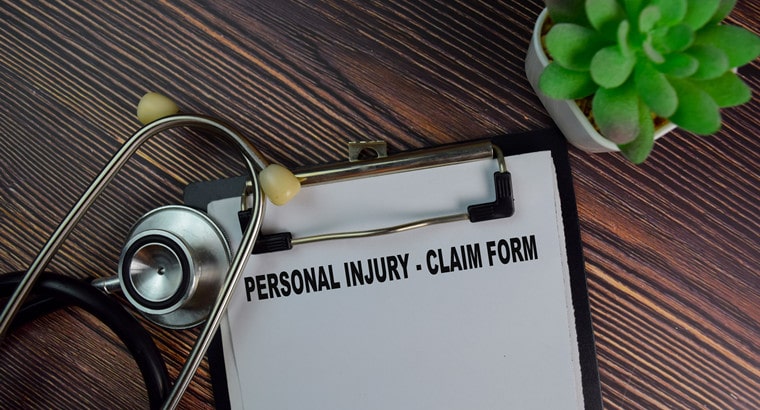When pursuing a personal injury claim, understanding the various elements of compensation is crucial. Apart from seeking damages for pain and suffering, medical expenses, and lost wages, it is essential to consider recoverable costs and expenses. These costs can significantly impact the overall compensation awarded in a personal injury case.
This article aims to shed light on the concept of recoverable costs and expenses in a personal injury claim and help individuals navigate the intricacies of the legal process.
Recoverable Costs and Expenses Defined:
Recoverable costs and expenses refer to the financial burdens incurred by the injured party as a direct result of the accident or injury. These costs can cover a wide range of items, including medical expenses, transportation costs, rehabilitation fees, and legal fees. In essence, they encompass any reasonable expenses that are necessary for the injured party’s recovery and to pursue their personal injury claim.
Understanding Different Types of Recoverable Costs and Expenses:
Medical Expenses:
Medical expenses are a significant component of recoverable costs. They include hospital bills, surgeries, medication costs, rehabilitation expenses, physical therapy fees, and any other medical treatments or services required as a result of the injury. It is crucial to maintain detailed records and receipts to substantiate these expenses during the legal process.
Transportation Costs:
Transportation costs incurred for medical appointments, therapy sessions, or any other essential trips related to the injury can be included in the recoverable costs. This includes expenses for ambulance services, taxi fares, or mileage costs if the injured party uses their vehicle.
Loss of Earnings:
If the injury prevents the victim from working or results in a loss of income, the recoverable costs may include compensation for the wages or salary that would have been earned during the recovery period. This can cover both past and future lost earnings, depending on the circumstances and extent of the injuries.
Rehabilitation and Therapy:
In some cases, victims may require ongoing rehabilitation or therapy to recover fully. These expenses, such as physiotherapy, chiropractic treatment, or psychological counseling, can be claimed as recoverable costs. The injured party must provide evidence of medical necessity and associated costs.
Home Modifications and Assistive Devices:
If the injury leads to long-term disabilities or mobility issues, the injured party may require home modifications or assistive devices to improve their quality of life. Expenses related to wheelchair ramps, handrails, or specialized equipment necessary for day-to-day activities may be included in the recoverable costs.
Legal Fees:
Engaging legal representation is often necessary to navigate the complex legal process of a personal injury claim. In many cases, legal fees incurred by the injured party can be recovered as part of the overall compensation. These fees typically cover attorney fees, court filing fees, expert witness fees, and any other expenses directly associated with pursuing the claim.
Recovering Costs and Expenses: Key Considerations:
It is important to note that the recoverability of costs and expenses may vary depending on the specific circumstances of the case. While some expenses are generally accepted as recoverable, others may require additional proof or justification. To ensure a successful recovery of costs and expenses, it is recommended to follow these key considerations:
Document and Preserve Evidence:
Maintain detailed records of all expenses related to the injury, including invoices, receipts, medical reports, and correspondence. This documentation will help substantiate the claim for recoverable costs.
Seek Legal Advice:
Consulting with an experienced personal injury attorney is crucial to understand the applicable laws and regulations in your jurisdiction. They can guide you through the legal process, evaluate the recoverable costs specific to your case, and advocate for your rights.
Timely Submission:
Each country has specific time limits within which a personal injury claim must be filed. In the UK, the claims time limit is three years. Failure to submit a claim within the prescribed time frame may result in the forfeiture of your right to recover costs and expenses. It is essential to adhere to these deadlines to protect your legal rights fully.
Negotiation and Settlement:
In many cases, personal injury claims are settled through negotiation before reaching the trial stage. During settlement negotiations, it is important to consider all recoverable costs and expenses to ensure fair compensation. Your attorney can help you determine an appropriate settlement amount that accounts for all eligible costs.
The Difference Between General Damages and Special Damages
General damages and special damages are two distinct categories of compensation awarded in a personal injury claim. Understanding the differences between these two types of damages is essential for a comprehensive understanding of the compensation process. Let’s explore each category in detail:
General Damages:
General damages refer to non-monetary losses that are not easily quantifiable, such as pain and suffering, emotional distress, and loss of enjoyment of life. These damages are intended to compensate the injured party for the physical, emotional, and psychological impact caused by the injury.
Key characteristics of general damages include:
- Pain and Suffering: This refers to the physical pain and emotional distress experienced by the injured party as a result of the accident or injury. It includes the immediate pain suffered at the time of the incident as well as any ongoing or chronic pain.
- Emotional Distress: General damages may also encompass the emotional and psychological impact of the injury, such as depression, anxiety, trauma, and loss of sleep. These damages aim to compensate the injured party for the mental anguish caused by the incident.
- Loss of Enjoyment of Life: If the injury significantly affects the injured party’s ability to engage in activities they previously enjoyed, general damages can be awarded to account for the loss of quality of life and diminished enjoyment of day-to-day activities.
Special Damages:
Special damages, also known as economic damages or specific damages, are quantifiable monetary losses that can be directly attributed to the accident or injury. These damages aim to compensate the injured party for actual financial expenses incurred as a result of the incident.
Key characteristics of special damages include:
- Medical Expenses: Special damages include reimbursement for past and future medical expenses related to the injury. This covers costs such as hospital bills, doctor’s consultations, surgeries, prescription medications, rehabilitation fees, and therapy sessions.
- Lost Wages: If the injury results in the inability to work, special damages may cover the loss of income during the recovery period. This includes wages, salaries, bonuses, and other employment-related benefits that the injured party would have earned had they not been injured.
- Property Damage: If personal property, such as a vehicle, was damaged or destroyed as a result of the incident, special damages can cover the costs of repairs or replacement.
- Other Financial Losses: Special damages may also encompass additional financial burdens caused by the injury, such as transportation expenses for medical appointments, home modifications, assistive devices, and any other costs directly related to the accident.
It’s important to note that special damages are usually easier to quantify and require supporting documentation, such as receipts, invoices, medical bills, and wage statements, to substantiate the claim.
Our Conclusion:
Recoverable costs and expenses play a crucial role in personal injury claims, as they directly impact the overall compensation awarded to the injured party. Understanding the various types of recoverable costs, preserving supporting evidence, and seeking legal advice are vital steps in pursuing a successful personal injury claim.
By being aware of these factors and working with an experienced lawyer, individuals can maximize their chances of receiving fair and just compensation for their injuries and associated costs.










